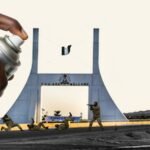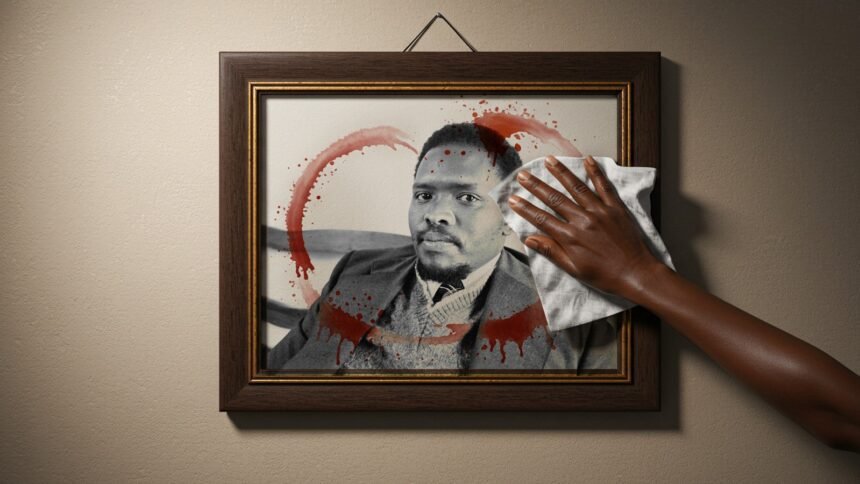Nearly half a century after Steve Biko’s death shocked South Africa and galvanised the global anti-apartheid movement, a court in Pretoria has reopened the inquest into how the Black Consciousness leader died in police custody. For many, this is not merely a legal process — it is an attempt to heal one of the deepest wounds of apartheid’s legacy.
Steve Biko was only 30 years old when he died in September 1977, after being arrested by security police. The original inquest, held in 1977 under apartheid rule, concluded that his death was due to a head injury sustained during a “scuffle” and effectively exonerated the police officers involved. No one was prosecuted. His death became an international rallying cry, with his face appearing on posters from London to Lagos, symbolising both the cruelty of apartheid and the resilience of Black South Africans.
Today’s reopening of the inquest is part of a broader effort to revisit unresolved cases from the apartheid era. South Africa’s National Prosecuting Authority (NPA) has been under pressure for years to take action on dozens of politically motivated killings that were never properly investigated. Families of the victims have long accused the post-apartheid state of dragging its feet, fearing that uncomfortable truths might emerge about compromises made during the transition to democracy.
For the Biko family, this moment is bittersweet. His son, Nkosinathi Biko, spoke outside the court, saying, “We are here not for vengeance but for the truth. For too long, the story of Steve Biko’s death has been wrapped in official lies. It is time to set the record straight.” The family’s lawyers are seeking to have the 1977 findings overturned and to pave the way for possible prosecutions of those responsible, many of whom are now elderly but still alive.
The reopening comes at a time when South Africa is grappling with growing disillusionment about its democratic project. Corruption scandals, economic stagnation, and high unemployment have eroded public trust in institutions. Revisiting the Biko case is as much about restoring confidence in justice as it is about righting a historical wrong. If the state can demonstrate that even the most politically sensitive cases can be pursued, it may help shore up faith in the rule of law.
Yet challenges abound. Several key witnesses from the 1977 inquest have died, and documentary evidence may be incomplete. Legal experts warn that securing convictions nearly fifty years later will be difficult. “The passage of time is always the enemy of justice,” said one human rights lawyer following the proceedings. “But it is better to try and fail than to never try at all.”
There is also the question of political will. Critics accuse the government of selectively reopening cases, often in response to public pressure rather than a systematic commitment to transitional justice. The Truth and Reconciliation Commission (TRC), which sat in the late 1990s, granted amnesty to some perpetrators who made full disclosures, but many others simply kept silent and escaped accountability. The Biko case stands as one of the most glaring examples of this unfinished business.
Beyond the courtroom, the reopening has reignited debate about Biko’s legacy. His philosophy of Black Consciousness emphasised psychological liberation as a precursor to political freedom, urging Black South Africans to reject internalised racism and assert their dignity. For a generation that did not live through apartheid, Biko has sometimes been reduced to a martyr’s iconography. The renewed attention on his case is prompting younger South Africans to rediscover his writings and speeches, which remain surprisingly relevant in a country still struggling with inequality and racial tensions.
The reopening of the inquest also highlights South Africa’s complicated relationship with its past. While the country rightly celebrates its peaceful transition to democracy, that transition came with compromises — including limited justice for many victims of state violence. As one political analyst put it this week, “South Africa buried apartheid, but it never fully buried the truth.”
International observers are watching closely. Biko’s name still carries moral weight far beyond South Africa’s borders. His story has inspired generations of activists, from African-American civil rights leaders to student protesters in Hong Kong. If this inquest leads to accountability, however belated, it could become a model for other countries wrestling with historical injustices.
For now, the courtroom proceedings in Pretoria are expected to last several weeks. The state will present fresh forensic evidence and newly declassified security files, while legal teams for the Biko family push for criminal prosecutions. Whether justice will ultimately be served remains uncertain, but the symbolic power of reopening the case cannot be overstated.
Steve Biko once wrote, “The most potent weapon in the hands of the oppressor is the mind of the oppressed.” Nearly five decades later, his words still resonate — and perhaps, with this inquest, South Africa is finally freeing itself from the mental chains of the lies told about his death. Justice delayed may yet be justice delivered.











